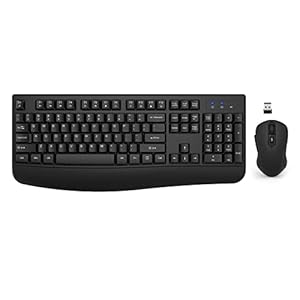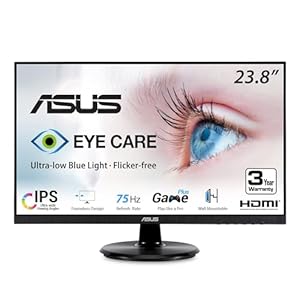It is truthfully troublesome to recollect the less complicated days of video card purchasing, earlier than crypto fanatics, provide chain points and pandemic demand pushed GPUs far past rising producer costs. Ideally, I would wish to let you know that NVIDIA’s $549 RTX 5070 and $749 RTX 5070 Ti are extra affordable alternate options to the $2,000 RTX 5090 and $1,000 5080. However card makers and retailers have already pushed RTX 5070 costs far past these MSRPs. Our evaluation unit, the ASUS 5070 Ti Prime, is at present promoting for $900 at Best Buy and $750 at Newegg (we’ll see how lengthy that lasts). And naturally, it is out of inventory at each shops.
Whereas I am unable to assure the precise price for any RTX 5070 Ti card, I can say this: they’re going to undoubtedly be stable 4K performers for a lot lower than the RTX 5080 and 5090. However when you’re not determined for an improve, it is value ready just a few months for stock and costs to stabilize.
{Hardware}
Primarily based on its specs and (hopeful) pricing, the RTX 5070 Ti at present presents the very best steadiness between efficiency and worth in NVIDIA’s lineup. It options 8,960 CUDA cores and 16GB of GDDR7 VRAM, effectively beneath the 5080’s 10,752 CUDA cores, however at the very least these playing cards have the identical quantity of reminiscence. The cheaper 5070 comes with simply 12GB of VRAM, which could possibly be an issue when gaming in 4K.
Our ASUS 5070 Ti card is pretty nondescript, with three followers, a plastic body and an ordinary heatsink design. You possibly can select between efficiency and quiet BIOS modes, which solely adjustments how aggressive the followers are. Its 2.5-slot design makes it tiny sufficient for small form-factor instances, although I observed it was truly barely bigger than the RTX 5090 Founders card.
| RTX 5090 | RTX 5080 | RTX 5070 Ti | RTX 5070 | RTX 4090 | |
| Structure |
Blackwell |
Blackwell |
Blackwell |
Blackwell |
Lovelace |
| CUDA cores |
21,760 |
10,752 |
8,960 |
6,144 |
16,384 |
| AI TOPS |
3,352 |
1,801 |
1,406 |
988 |
1,321 |
| Tensor cores |
fifth Gen |
fifth Gen |
fifth Gen |
fifth Gen |
4th Gen |
| RT cores |
4th Gen |
4th Gen |
4th Gen |
4th Gen |
third Gen |
| VRAM |
32 GB GDDR7 |
16 GB GDDR7 |
16 GB GDDR7 |
12 GB GDDR7 |
24 GB GDDR6X |
| Reminiscence bandwidth |
1,792 GB/sec |
960 GB/sec |
896 GB/sec |
672 GB/sec |
1,008 GB/sec |
| TGP |
575W |
360W |
300W |
250W |
450W |
The 5070 Ti may additionally simply match into extra gaming rigs with out requiring an influence provide improve. It has a peak energy draw of 300 watts, in comparison with the 5080’s 360W and the 5090’s whopping 575W. Which means the 5070 Ti ought to be capable of run comfortably with an 850W PSU, with no need to make the leap to an enormous 1,000W unit.
What actually makes this GPU particular, although, is that it totally helps multi-frame technology in DLSS 4, NVIDIA’s AI upscaling expertise. That permits the GPU to generate as much as 3 frames with AI for each body rendered in real-time. It additionally lets NVIDIA declare that the 5070 can match the speeds of the $1,599 RTX 4090. Whilst you may argue these frames are simply “pretend” to make benchmarks look higher, my time with the RTX 5070 Ti and 5090 has proven that they do result in a smoother gameplay expertise.
On high of multi-frame technology, different DLSS 4 options are additionally trickling right down to earlier NVIDIA playing cards. As I famous in my 5090 evaluation, “RTX 40 playing cards will likely be extra environment friendly with their single-frame technology, whereas RTX 30 and 20 playing cards may also see an improve from AI transformer fashions used for ray reconstruction (resulting in extra secure ray tracing), Tremendous Decision (larger high quality textures) and Deep Studying Anti-Aliasing (DLAA).”
In use: A succesful 4K gaming GPU
First issues first: The RTX 5070 Ti is just barely sooner than the 4070 and 4070 Ti in most benchmarks. The brand new card is 17 % forward of the 4070 Ti within the 3DMark Timespy Excessive check, and 21 % sooner than the 4070 Ti Tremendous in Speedway bench. The distinction is even smaller in uncooked computing and rendering duties: The 5070 Ti scored a mere 8 % greater than the 4070 Ti within the Geekbench 6 GPU benchmark.
|
None |
3DMark TimeSpy Excessive |
Geekbench 6 GPU |
Cyberpunk (4K RT Overdrive DLSS) |
Blender |
|
NVIDIA RTX 5070 Ti |
12,675 |
238,417 |
153fps (4X body gen) |
7,365 |
|
NVIDIA RTX 5090 |
19,525 |
358,253 |
246fps (4X body gen) |
14,903 |
|
NVIDIA RTX 4070 Ti Tremendous |
11,366 |
220,722 |
75fps (1x body gen) |
7,342 |
|
NVIDIA RTX 4070 |
8,610 |
N/A |
45fps (1x body gen) |
6,020 |
However, after all, precise gaming efficiency issues greater than benchmarks. And when you’re enjoying one thing with assist for DLSS 4, you will actually discover some enhancements. Dragon Age: The Veilguard held a gentle 200fps in 4K with 4X multi-frame technology, ray tracing and graphics settings maxed out, On the 4070 Ti, I usually noticed between 90fps and 100fps with those self same graphics settings and DLSS 3.5’s single body technology.
Now, I am unable to truly say the sport appeared twice as easy on my Alienware 32-inch QD-OLED monitor, but it surely undoubtedly appeared silky over the hours I’ve examined. There weren’t any bizarre upscaling artifacts, these frames felt actual. It is also value noting the RTX 5090 clocked 240fps in Dragon Age with the identical graphics settings. Maybe my CPU held it again a bit (I am operating a Ryzen 9 7900X), however the 5070 Ti’s efficiency was nonetheless remarkably shut whereas being a less expensive GPU.
Cyberpunk 2077 additionally performed like a dream in 4K in ray tracing overdrive mode with multi-frame gen, reaching 150fps on common. That is effectively beneath the 5090’s beautiful 250fps determine, but it surely’s nonetheless spectacular for a sport that used to deliver highly effective rigs to their knees. Cyberpunk additionally hit 230fps in 1,440p with those self same settings, which additionally upscales superbly to 4K screens.
For video games with out DLSS 4, like Halo Infinite, the 5070 Ti was nonetheless a stable performer, reaching a median of 140fps with maxed-out graphics and ray tracing. Compared, the 5090 hit 180fps on common. Even when you’re fortunate sufficient to have a 240Hz 4K monitor, I would guess even demanding avid gamers can be simply superb with the 5070 Ti’s speeds. However when you care extra about framerates than decision, it’s going to nonetheless have you ever lined. I noticed 220fps in Halo Infinite in 1,440p, and 320fps in 1080p.
The ASUS 5070 Ti usually idled between 30C and 35C, and it rapidly reached as much as 65C beneath load. Its fan array is not as subtle because the 5090 Founder’s card, but it surely nonetheless managed to chill down the cardboard beneath 40C in round 15 seconds.
Do you have to purchase the RTX 5070 Ti?
Merely put, the RTX 5070 Ti dealt with nearly every part I threw at it, and I did not discover myself lacking the 5090 an excessive amount of (other than bragging rights). Sadly, I have never had an opportunity to check the RTX 5080, however given its excessive price, it is nonetheless one thing I would have hassle recommending to anybody.
The actual query for avid gamers proper now’s: Do you want the RTX 5070 Ti’s 16GB of VRAM and better CUDA rely? If you happen to’re aiming to play in 4K more often than not, it’s going to be value having extra than simply the 5070’s 12GB of RAM. Video games have gotten extra complicated yearly, so it seemingly will not be lengthy earlier than you will really need 16GB of VRAM to play 4K video games comfortably. However when you’re residing the 1,440p life, then 12GB will seemingly be sufficient for years to return.
DLSS 4’s multi-frame gen is the largest draw for NVIDIA’s 50-series playing cards, and it is largely helpful for 4K gaming. So when you’re joyful together with your 40-series GPU and needn’t push a 4K 240Hz monitor to its restrict, there’s not a lot cause to improve. For 30- and 20-series homeowners although, your endurance will likely be rewarded.
As I discussed earlier than, it is nonetheless value ready just a few months to see how costs settle. If you happen to’re fortunate sufficient to attain the RTX 5070 Ti for $750, go for it. Nevertheless it’s far much less compelling at $900 or above. At that time, you are simply approach too near the 5090’s $1,000 MSRP.
We’re nonetheless ready to see how AMD’s upcoming RDNA 4 Radeon 9070 and 9070 XT GPUs will carry out, however they’re being positioned as direct rivals to the 5070 and 5070 Ti. AMD lastly has DLSS-like AI-powered upscaling coming this 12 months, so the distinction between its playing cards and NVIDIA’s could also be slimmer than standard. However NVIDIA additionally has a dramatic head begin, and it will seemingly take some time for AMD’s Fluid Motion Frames expertise to make amends for multi-frame technology.
Wrap-up: An awesome 4K card… if you will get it near $750
The RTX 5070 Ti gained me over in methods I did not count on. I knew it will be a tad sooner than the 4070 Ti Tremendous, however with the addition of multi-frame technology, it is also a much more succesful 4K card. And it is undoubtedly extra future-proof than the 5070, because it has 16GB of VRAM just like the 5090.
Whereas I believe the $549 5070 stays probably the most intriguing entry of NVIDIA’s new household, it is good to see that there is one thing for wise lovers between that and the $1,000 5090. And sure, it is nonetheless unusual to name a $750 video card “wise.”
This text initially appeared on Engadget at https://www.engadget.com/gaming/laptop/nvidia-geforce-5070-ti-review-a-sensible-4k-powerhouse-for-749-140023082.html?src=rss
Trending Merchandise

Wi-fi Keyboard and Mouse Combo, EDJO 2.4G Full-Sized Ergonomic Pc Keyboard with Wrist Relaxation and three Stage DPI Adjustable Wi-fi Mouse for Home windows, Mac OS Desktop/Laptop computer/PC

SAMSUNG 27″ Odyssey G32A FHD 1ms 165Hz Gaming Monitor with Eye Saver Mode, Free-Sync Premium, Height Adjustable Screen for Gamer Comfort, VESA Mount Capability (LS27AG320NNXZA)

ASUS VA24DQ 23.8â Monitor, 1080P Full HD, 75Hz, IPS, Adaptive-Sync/FreeSync, Eye Care, HDMI DisplayPort VGA, Frameless, VESA Wall Mountable ,BLACK

Logitech MK120 Wired Keyboard and Mouse Combo for Windows, Optical Wired Mouse, Full-Size, USB, Compatible with PC, Laptop – Black

ASUS 31.5â 4K HDR Eye Care Monitor (VP327Q) â UHD (3840 x 2160), 99% sRGB, HDR-10, Adaptive-Sync, Speakers, DisplayPort, HDMI, Flicker Free, Blue Light Filter, VESA Mountable,Black










